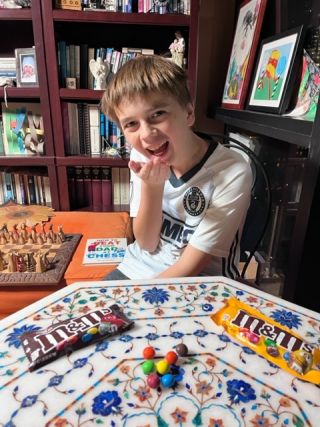Gratitude
Why Practicing Gratitude Every Day Is Key to Well-Being
Gratitude is a long-term practice, not a short-term one.
Posted November 24, 2022 Reviewed by Abigail Fagan
Key points
- Gratitude can boost happiness and strengthen relationships.
- Feeling it is one thing, but expressing it is key.
- When expressing gratitude to others, focus on the strengths and actions of the giver, not just the benefits for oneself.

Practicing gratitude is fundamental to a flourishing life. On Thanksgiving and during the holiday season many of us naturally seem to make a conscious effort to be grateful, which is terrific. However, if feeling grateful only lasts a day or two, we will not necessarily reap the long-term benefits that a grateful heart and mind can produce.
Of all the positive emotions, gratitude appears to be one of the most important for our overall well-being. Gratitude helps us focus on what we have, rather than lack. It turns our attention to the good, rather than dwelling on our many gripes in life.
Researchers have found that gratitude is foundational for healthy relationships. It’s the emotional glue that strengthens bonds. In fact, one study found that couples low in gratitude had a 50 percent chance of breaking up six months later than those higher in gratitude. In many relationships that fall apart, one or both individuals do not feel any type of gratitude from their partner. Instead, they often feel taken for granted.
We all naturally want to feel appreciated by our partner, our friends, family and colleagues. Gratitude is a great way for individuals to feel and express their appreciation to one another. Here are some reminders on how to practice gratitude today and every day.

- Gratitude is a skill. While some of us appear to be naturally grateful, seeing the blessings bestowed upon us, many of us are not. As we discuss in Happy Together, the good news is that gratitude is a skill we can learn and practice. Like a muscle, it gets stronger the more we use it. Start noticing the good in life today. You can start small by being thankful for the sunshine, a hot cup of coffee, a warm shower. After a while, gratitude can become a regular habit where we train our brain to focus on the many gifts in life, rather than the gripes.
- It’s not enough to simply feel grateful, we must express it as well. Our spouses, families, and friends aren’t mind readers. Do not assume they know we are grateful for them. Make it a habit to tell them on a regular basis. Gratitude is like compound interest. The more we express it the stronger our connections become. It has been found to be a booster shot for our relationships.
- It’s not just if you express gratitude but how you do it that matters. When expressing gratitude to others be sure to focus on the strengths and actions of the giver, not just the gifts and benefits to yourself. For example, if your spouse cooked you a delicious meal, don’t simply focus on how much you liked the food. And how it was your favorite meal ever. Also, emphasize his personality and traits in preparing the meal. Perhaps acknowledge his kindness in taking the time to cook a special dinner. And his sensitivity in noticing how a nutritious meal is important to you.
- Teaching our kids gratitude is essential. Teaching our kids how to feel and express gratitude is fundamental to their well-being and development. Kids, like many adults, don’t naturally feel grateful. By helping them to cultivate a practice of gratitude, they will be more able to focus on the good in life and others, something we all naturally want for our children. We recently spoke with a reporter at the Philadelphia Inquirer about a fun and simple exercise on using M&Ms to help kids express their gratitude. For each color of the M&M have your child pick something or someone they are grateful for.
In sum, let’s do our best to continue feeling and expressing gratitude every day, not just throughout the Thanksgiving season. A grateful heart and mind can do wonders for our individual and relational well-being. The more we practice gratitude, the better we feel and the stronger our relationships become.

References
Pileggi Pawelski, S., Pawelski, J. O. (2018). Happy Together: Using the Science of Positive Psychology to Build Love That Lasts. NY: TarcherPerigee.
Pileggi Pawelski, S., Pawelski, J. O. (2018). Happy Together: Using the Science of Positive Psychology to Build Love That Lasts. NY: TarcherPerigee.
Pileggi Pawelski, S., Pawelski, J. O. (2018). Happy Together: Using the Science of Positive Psychology to Build Love That Lasts. NY: TarcherPerigee.


